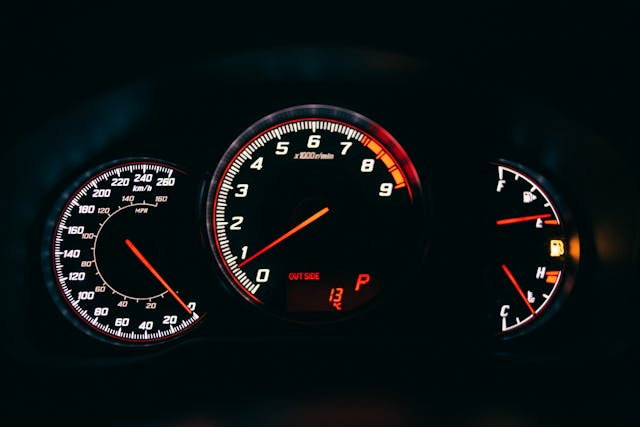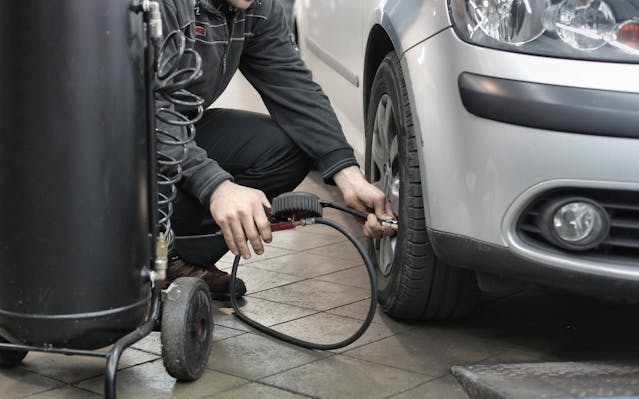Preventative Maintenance for Savvy Car Owners
- Saves money on repairs in the long run.
- Extends your car’s lifespan and improves performance.
- Follow the manufacturer’s maintenance schedule.
- Prioritize tasks, DIY where possible, and find deals.
- Watch for warning signs like strange noises or decreased performance.
- Invest in preventative maintenance for a safe, reliable, and long-lasting car.
What is Preventative Maintenance for Cars?
Preventative maintenance for cars refers to the regular upkeep and inspection of a vehicle to prevent potential issues from arising. It involves proactive measures to keep your car in optimal condition and avoid costly repairs down the road.
By performing regular preventative maintenance, you can address minor problems before they escalate into major issues, ensuring your car runs smoothly and efficiently.
A preventative maintenance schedule is crucial for extending your car’s lifespan and maximizing its performance.
Importance
Preventative maintenance is essential for prolonging the life of your vehicle and preventing unexpected breakdowns or failures.
Regular upkeep can help you save money in the long run by avoiding costly repairs that could have been prevented with timely maintenance.
Investing in preventative maintenance ensures that your car remains safe, reliable, and efficient for years.
Benefits
Some benefits of preventative maintenance include improved safety on the road, better fuel efficiency, and increased resale value for your vehicle.
By staying on top of maintenance tasks, you can prevent car problems such as engine failures, brake issues, and transmission problems.
Overall, preventative maintenance is a proactive approach to car care that can save you time, money, and stress in the long term.
How Often Should I Perform Preventative Maintenance?
Mileage Intervals
It is recommended that you follow the manufacturer’s guidelines for preventative maintenance, which are based on mileage intervals, typically every 5,000 to 10,000 miles.
Regular oil changes, tire rotations, and brake inspections are important tasks that should be performed at specific mileage intervals to keep your car running smoothly.
By adhering to mileage-based maintenance schedules, you can catch any potential issues early on and prevent major repairs in the future.
Time Intervals
In addition to mileage-based intervals, it is also important to consider time intervals for preventative maintenance tasks, such as checking fluid levels and inspecting components regularly.
Factors such as climate, driving conditions, and frequency of use can impact the frequency of maintenance tasks, so it’s essential to stay on top of these checks to prevent problems.
Setting a calendar reminder for routine maintenance can help you stay organized and ensure your car remains in optimal condition year-round.
Seasonal Considerations
Seasonal changes can affect your vehicle’s performance and condition, so adjusting your preventative maintenance schedule is important.
For example, in the winter, it’s crucial to check your battery, tires, and heating system to ensure they are prepared for cold weather conditions.
By incorporating seasonal maintenance tasks into your routine, you can address specific issues that may arise due to changing weather and driving conditions.
What Are Some Essential Preventative Maintenance Tasks?
Oil Changes
Regular oil changes are critical for maintaining your car’s engine health and performance. Fresh oil helps lubricate the engine components and prevent wear and tear.
Following the manufacturer’s recommendations for oil change intervals, you can ensure that your engine remains in top condition and operates efficiently.
Neglecting oil changes can lead to engine damage, decreased fuel efficiency, and costly repairs down the road.
Brake Inspections
Brakes are a crucial safety component of your vehicle, so regular inspections and maintenance are essential for ensuring your safety on the road.
Checking your brake pads, rotors, and fluid levels can help identify any potential issues early on and prevent brake failure while driving.
Addressing brake problems promptly through preventative maintenance can save you from hazardous situations and expensive repairs.
Tire Rotations
Rotating your tires at regular intervals is important for maintaining even wear and extending the lifespan of your tires.
Uneven tire wear can lead to poor handling, decreased fuel efficiency, and compromised safety, so rotating your tires can help ensure a smooth and safe ride.
By including tire rotations in your preventative maintenance schedule, you can maximize the performance and longevity of your tires.
How Can I Save Money on Preventative Maintenance?
DIY vs Professional Services
While some maintenance tasks may require professional expertise, you can perform several DIY tasks to save money on preventative maintenance.
Simple tasks like changing the air filter, checking fluid levels, and inspecting tires can be done at home with basic tools and a little know-how.
For complex suspension repair or inspection, it’s best to consult a professional auto technician to ensure the job is done correctly and safely.
Discounts and Coupons
Many auto body service centre offer discounts, promotions, and coupons for preventative maintenance services, so it’s worth shopping around for the best deals.
Signing up for loyalty programs or subscribing to newsletters from local auto shops can help you stay informed about special offers and discounts on maintenance services.
By taking advantage of savings opportunities, you can reduce the cost of preventative maintenance and keep your car in top condition without breaking the bank.
Prioritizing Tasks
Not all maintenance tasks have to be done at once, so it’s important to prioritize tasks based on urgency and importance to your vehicle’s performance.
Identifying critical maintenance tasks such as oil changes, brake inspections, and tire rotations can help you allocate your budget and time effectively for preventative maintenance.
By focusing on essential tasks first and scheduling less critical ones for later, you can maintain your car’s health without overspending or neglecting necessary repairs.
What are the Signs that My Car Needs Maintenance?
Strange Noises
Unusual noises from your car, such as squealing, grinding, or knocking, could indicate a potential problem that requires immediate attention.
Ignoring strange noises can damage your vehicle’s components further, so it’s crucial to address them promptly through maintenance or repairs.
By listening for and identifying abnormal sounds, you can prevent more significant issues and keep your car running smoothly.
Dashboard Warning Lights

Dashboard warning lights indicate potential issues with your vehicle’s systems, so it’s essential to pay attention to them and take action accordingly.
Common warning lights include the check engine light, ABS light, and battery light, which can signal problems that must be addressed through maintenance or repairs.
Ignoring warning lights can result in decreased performance, reduced safety, and costly repairs, so addressing them promptly is important to prevent further damage.
Decreased Performance
If you notice a drop in your car’s performance, such as sluggish acceleration, decreased fuel efficiency, or difficulty starting, it may be a sign that maintenance is needed.
Various issues, including dirty filters, worn-out components, or low fluid levels, can cause reduced performance, all of which can be addressed through preventative maintenance.
By addressing performance issues promptly through maintenance, you can restore your car’s functionality and prevent more significant problems from arising.
What Tools Do I Need for Basic Preventative Maintenance?
Oil Filter Wrench
An oil filter wrench is essential for changing your car’s oil and replacing the oil filter, as it allows you to tighten or loosen the filter securely.
A quality oil filter wrench in your toolkit can make oil changes more manageable and help you maintain your engine’s health effectively.
Choose an oil filter wrench that fits your vehicle’s filter size to ensure a secure grip and smooth oil filter replacement during maintenance.
Tire Pressure Gauge

A tire pressure gauge is a handy tool for checking your tire pressure regularly and ensuring that your tires are properly inflated for safe and efficient driving.
Low tire pressure can lead to uneven wear, decreased fuel efficiency, and compromised handling, so maintaining proper tire pressure is crucial for car maintenance.
By investing in a reliable tire pressure gauge, you can keep your tires in optimal condition and prevent potential issues on the road.
Socket Set
A socket set is a versatile tool kit with various socket sizes and attachments for performing a wide range of maintenance tasks on your vehicle.
A socket set can help you tackle DIY repairs and maintenance without the need for multiple tools or equipment, from tightening bolts to removing components.
Having a socket set in your garage can make preventative maintenance more convenient and efficient, allowing you to address issues promptly and effectively.
How Can I Prevent Common Car Problems?
Checking Fluid Levels Regularly
Regularly checking and topping up essential fluids such as oil, coolant, brake fluid, and transmission fluid can help prevent major car problems.
Low fluid levels can lead to engine damage, overheating, brake failure, and transmission issues, so keeping these fluids at the appropriate levels is crucial.
By incorporating fluid checks into your maintenance routine, you can identify leaks, replenish fluids as needed, and maintain your car’s overall performance and longevity.
Avoiding Harsh Driving Habits
Aggressive driving behaviors such as speeding, rapid acceleration, and sudden braking can strain your car’s components unnecessarily and lead to premature wear and tear.
By practicing smooth, defensive driving habits and obeying speed limits, you can reduce the risk of mechanical failures, extend your car’s lifespan, and improve fuel efficiency.
Being mindful of your driving habits and treating your car carefully can help prevent common car problems and minimize the need for auto body collision repairs or replacements.
Keeping the Exterior Clean
Maintaining a clean exterior enhances your car’s appearance and helps prevent rust, corrosion, and damage to the paint and bodywork.
Regular washing, waxing, and detailing can protect your car from environmental elements, road debris, and harmful substances affecting its overall condition and resale value.
Keeping the exterior clean and well-maintained can preserve your car’s aesthetics, prevent deterioration, and extend its lifespan effectively.
Keeping Your Car Looking Sharp:
While not strictly preventative maintenance, maintaining a clean and well-maintained exterior with regular washing and occasional waxing can help preserve your car’s paint job (potentially reducing the need for ceramic coating service in the future) and even improve its resale value. Glass tinting can also add UV protection and a touch of style. Use mobile auto detailing services for a convenient and professional car cleaning experience.

What Are the Benefits of Regular Car Maintenance?
Improved Safety
Regular car maintenance helps ensure your vehicle operates safely, reducing the risk of accidents, breakdowns, and unexpected failures.
By addressing potential issues early on and keeping your car in top condition, you can enhance your safety and the safety of your passengers and other road users.
Investing in preventative maintenance is a proactive approach to safety that can give you peace of mind and confidence in your vehicle’s performance.
Increased Resale Value
Well-maintained cars command higher resale values than neglected ones, as buyers value vehicles that have been cared for, serviced regularly, and kept in good condition.
By adhering to a preventative maintenance schedule, you can preserve your car’s appearance, performance, and functionality, making it more appealing to potential buyers in the future.
Maintaining detailed records of maintenance and repairs can also help demonstrate the value and reliability of your vehicle when it comes time to sell or trade it in.
Extended Lifespan
Regular preventative maintenance can significantly extend the lifespan of your vehicle by addressing wear and tear, preventing major issues, and keeping components in good working condition.
By investing in the care and upkeep of your car, you can maximize its longevity, durability, and performance, saving you money on repairs and replacements in the long run.
An extended lifespan for your vehicle means more years of reliable transportation and enjoyment, as well as fewer headaches and unexpected costs.
How Does Neglecting Preventative Maintenance Impact My Car?
Increased Risk of Breakdowns
Neglecting preventative maintenance can increase the risk of breakdowns, malfunctions, and failures while driving, leaving you stranded on the road and in need of costly repairs.
Ignoring maintenance tasks like oil changes, car air conditioning, brake inspections, and fluid checks can cause critical components to break down, causing safety hazards and inconvenience for you and your passengers.
Neglecting preventative maintenance risks compromising your car’s reliability, performance, and safety and facing unexpected breakdowns and repair expenses.
Costly Repairs
Delaying or skipping preventative maintenance can result in minor issues escalating into major problems that require expensive repairs, component replacements, or system overhauls.
Neglecting tasks like tire rotations, filter replacements, or fluid checks can damage your vehicle’s engine, transmission, and other critical components, leading to hefty repair bills.
By avoiding preventative maintenance, you not only put your car at risk of costly repairs but also increase the likelihood of facing unexpected expenses and financial strain.
Reduced Fuel Efficiency
Unmaintained cars are likelier to experience decreased fuel efficiency due to worn-out components, dirty filters, low fluid levels, and inefficient engine performance systems.
Auto accessories aren’t just for looks! From high-quality floor mats that protect your car’s interior to phone mounts for safe, hands-free driving, the right accessories can enhance your car’s functionality, comfort, and safety. Consider your needs and explore options like sunshades, cargo organizers, or upgraded seat covers to personalize your driving experience.
Skipping maintenance tasks like air filter replacements, tire inflations, and fuel system cleanings can result in poor fuel economy, higher emissions, and increased fuel consumption, costing you more at the pump.
By neglecting preventative maintenance, you not only compromise your car’s performance and longevity but also waste fuel, money, and resources on inefficient driving habits and neglected upkeep.
You’re making a smart investment by incorporating preventative maintenance into your car care routine. You’ll save money on repairs, extend your car’s lifespan, and ensure a safer and more enjoyable driving experience. Remember, a little TLC goes a long way in keeping your car on the road for years! Additionally, a well-maintained car with a good safety record (maintained brakes, suspension, etc.) might be eligible for lower insurance premiums from a local auto insurance company. Don’t forget to address any safety hazards promptly, such as a cracked or damaged windshield requiring auto windshield replacement.
In conclusion, preventative maintenance is a crucial aspect of car ownership that can help you extend your vehicle’s lifespan, improve its performance, and save money on costly repairs. By following a regular maintenance schedule, addressing potential issues early on, and staying on top of essential tasks, you can keep your car running smoothly and efficiently for years.